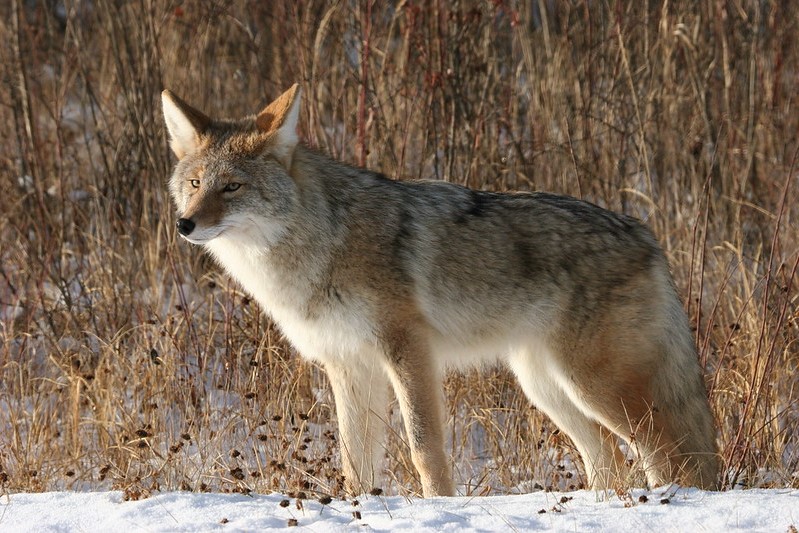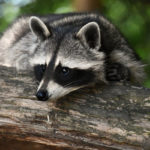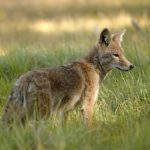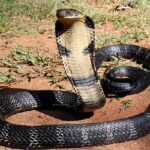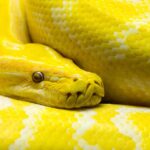
- Brian Moss (President)
- AAAC Wildlife Removal
11/28/2022 Total words : 1198
What do most coyotes eat?
The coyote population is widely distributed over most of North and Central America. From the west to the east coast, they can be found as far north as Alaska and as far south as Costa Rica. Coyotes have an extensive range and can adapt to various climatic conditions and habitats. Because of their adaptability, coyotes can live in multiple settings, including where people have settled. They are generally omnivores, but they prefer meat. They consume a lot of small mammals in their diet. Calves and lambs are examples of more significant, young mammals that coyotes occasionally prey upon. A coyote's diet also includes the dead bodies of animals in the natural environment. These can reach up to bison, moose, or elk sizes. Other coyotes will choose fresh meals over dead animals even though they can survive on carrion. A List of Food that Coyotes Eat Coyotes are opportunistic omnivores whose diet varies depending on the season and geographic location. In urban and suburban regions, coyotes help to stabilize and slow the total deer population by feasting on a white-tailed deer or any adult deer. Urban coyotes eat or may scavenge garbage or pet food and have even been known to attack livestock and domestic pets. In general, the diet of coyotes in urban areas is more varied than that of coyotes in rural areas. Here is a more comprehensive list of the food that coyotes eat: Fruits and Veggies Coyotes love to eat meat but are also content to eat various other foods. Whatever they can find to eat, they will consume. The fruit makes up a sizable portion of a coyote's diet. Coyotes spend a lot of time eating vegetables and fruits, especially berries, in autumn and winter when the fruit is in season—even cactus fruit in the desert. Other fruits that coyotes enjoy include: - Apples - Grapes - Melons - Peaches - Pears - Plums Other veggies that coyotes enjoy include: - Cabbage - Carrots - Corn - Lettuce - Peas - Potatoes - Soybeans - Squash - Sweet potatoes Coyotes will also eat grasses, wheat, other grains, the occasional acorn or beechnut, and berries such as blackberries, blueberries, raspberries, and strawberries. Small Animals Coyotes eat just about small animals, rodents, and even small dogs. They can find anything from rodents, rabbits, insects, and birds to reptiles. In fact, small animals make up the majority of a coyote's diet. Some of the animals coyotes eat are: -Chipmunks - Gophers - Ground squirrels - Hamsters - Mice - Mongooses - Opossums - Porcupines - Prairie dogs - Raccoons - Rats - Snakes - Weasels Coyotes will also eat lizards, frogs, and toads. They are not averse to eating carrion (dead animals) either. If they find a dead deer or another large animal, they will also eat that. Insects are not a preferred food for coyotes, but they will eat them if that is all that is available. Grasshoppers, crickets, beetles, ants, and caterpillars are all fair game for a coyote. Coyotes Hunt and Eat Fish You may not think coyotes are fish eaters, but they will eat fish if they can catch them. They are especially fond of trout, salmon, and other similar fish. They have even been known to wade into rivers to catch fish with their mouths. Coyotes will also eat shellfish like crabs, crayfish, and clams, as well as tiny turtles and even those dead in the water. While not their preferred food, fish make up a significant part of the diet. Coyotes Eat Poultry and Birds While not as common as small animals, coyotes will eat poultry and birds if they can catch them. Chickens, ducks, and turkeys are all on the menu for coyotes. They will also eat other birds such as pheasants, quail, robins, and songbirds. Coyotes have even been known to raid chicken coops and other poultry enclosures in search of a meal. If you keep poultry, it is essential to take steps to protect them from coyotes and other predators. Coyotes Eat Big Animals When pursuing large prey, coyotes will often hunt in groups. This gives a better chance of bringing down an animal larger than them. While they prefer smaller prey, coyotes will eat bigger animals. Coyotes have taken down deer, especially fawns, elk, moose, caribou, and bison. Coyotes consume livestock Coyotes will also eat livestock such as sheep, goats, calves, and pigs if they can get to them. They are especially fond of lambs. Coyotes have even been known to attack full-grown cows and horses and domestic pets such as cats and dogs. If a coyote feels incredibly bold, it may even attack a human, although it is rare. If you keep livestock, it is essential to take steps to protect them from coyotes and other predators. Coyote's Diet Adapt to Different Environment One of North America's most cunning big carnivores is the coyote. They have recently moved their species out of the rural American West and into populated regions like Los Angeles and New York. This accomplishment demonstrates a coyote's capacity to modify its diet to local conditions. Coyotes can kill larger prey in packs, but in cities, they can get by on waste left by residents. Coyotes typically hunt at night, especially in populated areas. In metropolitan areas, the best times for coyotes to hunt are at night and in the early hours of the morning. They will hunt during the day if hungry, but they prefer to hunt at night and relax during the day. They can minimize contact with people by food hunting at night in populated areas. How do Coyotes Hunt and Forage for Their Food? Coyotes prefer hunting alone or in packs. They try to be as stealthy as they can while hunting and killing their victim. They do this not to draw the attention of bears or other predators. Coyotes eat or hunt alone or in packs depending on their prey size. A single coyote won't go after a much larger animal by itself if there is one. Coyotes are intelligent animals, and they won't put their lives in danger to get their next meal. Professional Coyote Removal If you have coyotes on your property, it's essential to take action to get rid of them and prevent more damage. We at AAAC Wildlife Removal services, an industry leader in wildlife removal, can help you remove and prevent them from returning. Our thorough understanding of the biology and behavior of coyotes can assist you with difficulties you may have. We will work with you to create a custom plan that fits your specific needs and ensures that your coyote problem is taken care of for good. Contact us today to learn more about our coyote control services! Final Word Coyotes are intelligent and adaptable animals; their diet changes based on their environment and food availability. They are proficient hunters and will hunt in packs if necessary. Now that you know what most coyotes eat, be sure to protect your livestock and pets if you live in an area where they are present. If you have a coyote problem, be sure to contact us to ease your worries away!







